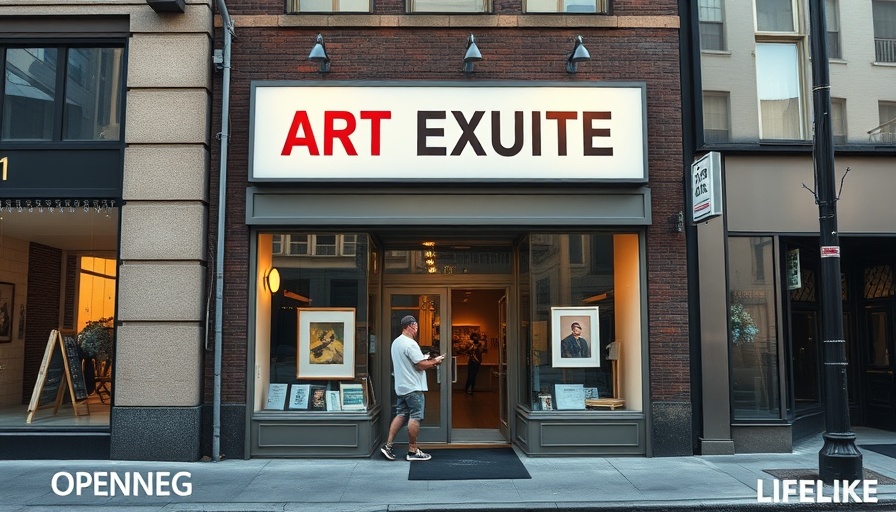
From Functional to Creative: The Evolution of Lee's Launderette
In the heart of San Francisco’s Mission District, a unique transformation is taking place at 3151 16th St., the former site of B&K Launderette, which served the community from the 1970s until its closure in 2017. Soon, this once functional space will be reborn as Lee's Launderette, a community art hub that honors its roots while breathing new life into an essential neighborhood gathering point. This initiative not only preserves family history but also aims to create a vibrant platform for creatives and residents alike.
The Creative Community and Personal Legacy
Elizabeth Lee, the driving force behind this revitalization, has a personal connection to the location—her parents ran the original laundromat, and their legacy is a cornerstone of her vision. Rather than allowing the space to fall victim to city vacancy taxes, she has made a conscious decision to turn it into a multi-purpose venue for artistic expression and community engagement. "What was once a laundromat is now becoming a stage, a classroom, and a canvas for the neighborhood," Lee says, underscoring her intention to transform this site into a creative hub for all ages.
As Katherine Morgan noted in her exploration of community-driven initiatives, spaces like laundromats have vast untapped potential when reimagined as venues for social connection. Lee’s Launderette stands to not only honor the past but also foster a sense of belonging in a city known for its rapid change. This aligns with the concept of creating community hubs discussed in a recent article that emphasizes the need for engaging, welcoming environments in everyday settings.
Artistic Engagement: Beyond Traditional Spaces
The vision for Lee’s Launderette goes beyond just showing art. Future plans include workshops, collaborative projects, and educational opportunities. For instance, a mural-class project with the Youth Arts Exchange is set to involve local students, who will contribute their designs to a striking dragon mural—a tribute to Elizabeth's Chinese heritage. This kind of community involvement not only enhances artistic skills but also instills pride in collective achievements among young locals.
Mark Pinsukanjana, the director of operations, reflects on this collaborative spirit: "We want it to be like an outlet for arts and artists to work and try experimental things; maybe a little bit of an incubator." This incubator concept is crucial for nurturing talent and creating innovative pathways for local artists to explore their work while engaging with the community.
Events to Look Forward To
Lee's Launderette will hold a soft opening on October 17 and 18, featuring local and regional artists including Cynthia McIntosh and Jessica Martin. With an exhibit running through November, this will be a fantastic opportunity for the community to interact with fresh artistic expressions, signifying the launch of a space designed for both local culture and communal enrichment.
As referenced in explorations of successful community hubs, regular events and workshops create an atmosphere that draws patrons back, building a loyal customer base rooted in shared experiences—something that Lee's Launderette aims to achieve. By fostering such engagement, the laundromat's transition into an arts space aligns perfectly with broader community development goals, providing measurable benefits and enhancing the local ecosystem.
The Importance of Community Spaces
With urban landscapes evolving quickly, Lee's Launderette represents a counter-narrative to the ongoing homogenization of cities. Community spaces like this one offer a refuge for creative expression, particularly as neighborhoods undergo rapid redevelopment. Such establishments become vital resources for connecting individuals, nurturing creativity, and preserving local culture.
A Call to Community Action
By attending the upcoming events and supporting initiatives like Lee's Launderette, residents can play an integral part in revitalizing their neighborhoods. Engaging with local art, sharing perspectives, and participating in creative projects contributes to a richer, shared community identity. Don’t miss the chance to witness this exciting transformation of a beloved local landmark!
 Add Row
Add Row  Add
Add 




Write A Comment